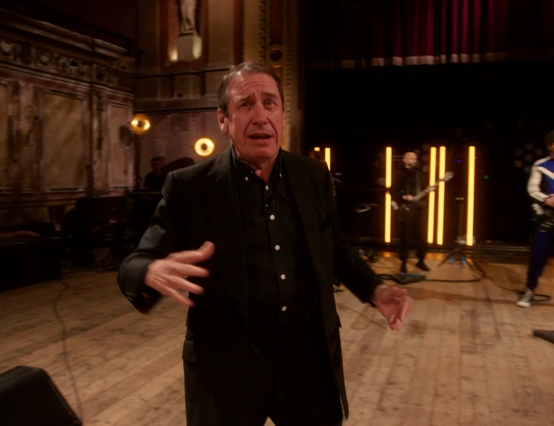From Sam Fender to Bruce Springsteen the life of the working class has been portrayed throughout music’s history. However, many artists are accused of class appropriation to gain more popularity with fans. Class appropriation refers to when elements of the lower classes are taken and adapted to fit into more middle or upper-class lifestyles with little to no regard for their origin.
So what’s the issue?
When discussing class appropriation in music, we generally refer to the way an artist is perceived to be from a working-class background due to their persona or lyrics. However, in reality, they have a middle-class socioeconomic background. With the music industry already hard to break into, some feel that, for those from underprivileged backgrounds, the odds are stacked against them even more. Therefore artists that push working-class personas when they have no real-world experience are taking away opportunities from working-class musicians.
One of the biggest songs of the Britpop era in the 90s was indeed titled Common People. Written by Jarvis Cocker and performed by Pulp, the song was a tongue and cheek look at how middle-class people perceived those less fortunate. The song was widely hailed by critics for its depiction of the ignorance shown towards the working classes or, rather, Britain’s common people. The track even had its own hour-long documentary about the process of creating the track in 2007 by BBC Three.
In recent years, Sam Fender has become known for speaking out against the government and its treatment of working-class people. Fender also tells stories of his childhood and the struggles he faced growing up in poverty.
Other musicians such as Jake Bugg have also been widely praised for speaking up about social issues that impact class. Jake has been very honest in his lyrics when describing his childhood and what it means to him to be from humble beginnings. Songs like Messed Up Kids and Lightning Bolt depict times in Jake's life that many of those from deprived areas can also relate to.
However, artists such as Yungblud (real name: Dominic Harrison) are constantly accused of working-class appropriation. In many interviews, the singer implies he had a tough childhood financially despite going to private school. In an interview with WTBU, Harrison can be quoted as saying, “I think kind of that oppressive, very working-class nature was hard for me growing up”.
Punk band IDLES have been accused of class appropriation in the past. Many of their tracks comment on the government’s mistreatment of the poor and themselves living in poverty despite being middle-class. However, one wonders how fine the line is between using your voice as a privileged person for good and insinuating a lifestyle to achieve popularity.
So what do working-class musicians think on this issue?
Sleaford Mods lead singer Jason Williamson hit out at IDLES in 2019, accusing them of class appropriation. When talking to NME, Jason said, “there were lines like ‘Tarquin’ that would insinuate that they were knocking the middle classes, but it turns out they’re not working class.” Jason continued to say, “That offended me, because I then held the belief that they were appropriating, to a certain degree, a working-class voice.”
We spoke to YNES, a singer-songwriter from London to ask what she thought about class appropriation in music:
“For me, one of the main issues with creating a working-class persona is that actually being working-class goes hand in hand with a lot of DIY culture - think gritty, urban, down to earth in a low-budget, etc. As a working-class musician there isn't a choice in this; it's just make do with what you have. As much as these are hindrances that a lot of us don't have any way around, it can, in a way, breed creativity and resilience.”
YNES went on to say;
“The disingenuous nature of piecing together a personal brand, creating a fanbase of people who assume they relate to you, benefiting off of them whilst lacking any depth or understanding of their actual struggles, completely goes against the truthful attitude of working-class artists”.
We also spoke to Latir, a musician from London, to ask what he thought on the issue:
“I think the often portrayed appropriation of the working-class in popular music is just as contradictory as it is dangerous. The irony in using one’s own wealth to romanticize a working-class ‘aesthetic’ as means of either relating [or] captivating a wider, more specific audience is horrendous and shouldn’t be encouraged. It not only warps the working-class youth's perspective on their own situations. It also takes away and overshadows their own talents and opportunities.”
However, it's not just British musicians with themes of working-class society running through their repertoire. Irish band Fontaine’s D.C. talk openly about the gentrification of Dublin city where they grew up and what it means to be lower-class in Ireland, how this impacts their musical influence and shapes them as people. They’ve previously spoken about the way the Irish government treats democracy with lead singer Grian Chatten quoted as saying: “democracy works when people get what they voted for and they haven't”.
The reason Fontaine’s D.C. has become so popular is that they aren’t afraid to speak out on real-world issues and have first-hand experience of their song’s themes. However, when working-class issues are exploited for brownie points and popularity by artists who have yet to experience austerity and the constant struggle to build a career with little support, they risk being completely out of touch with the fan base altogether.
One thing's for certain, class appropriation is rife within music, and there are many other artists we could discuss. Whilst it's important for artists to use their voice for good and help those at a disadvantage, transparency is key, so no one feels they are being taken advantage of.









0 Comments